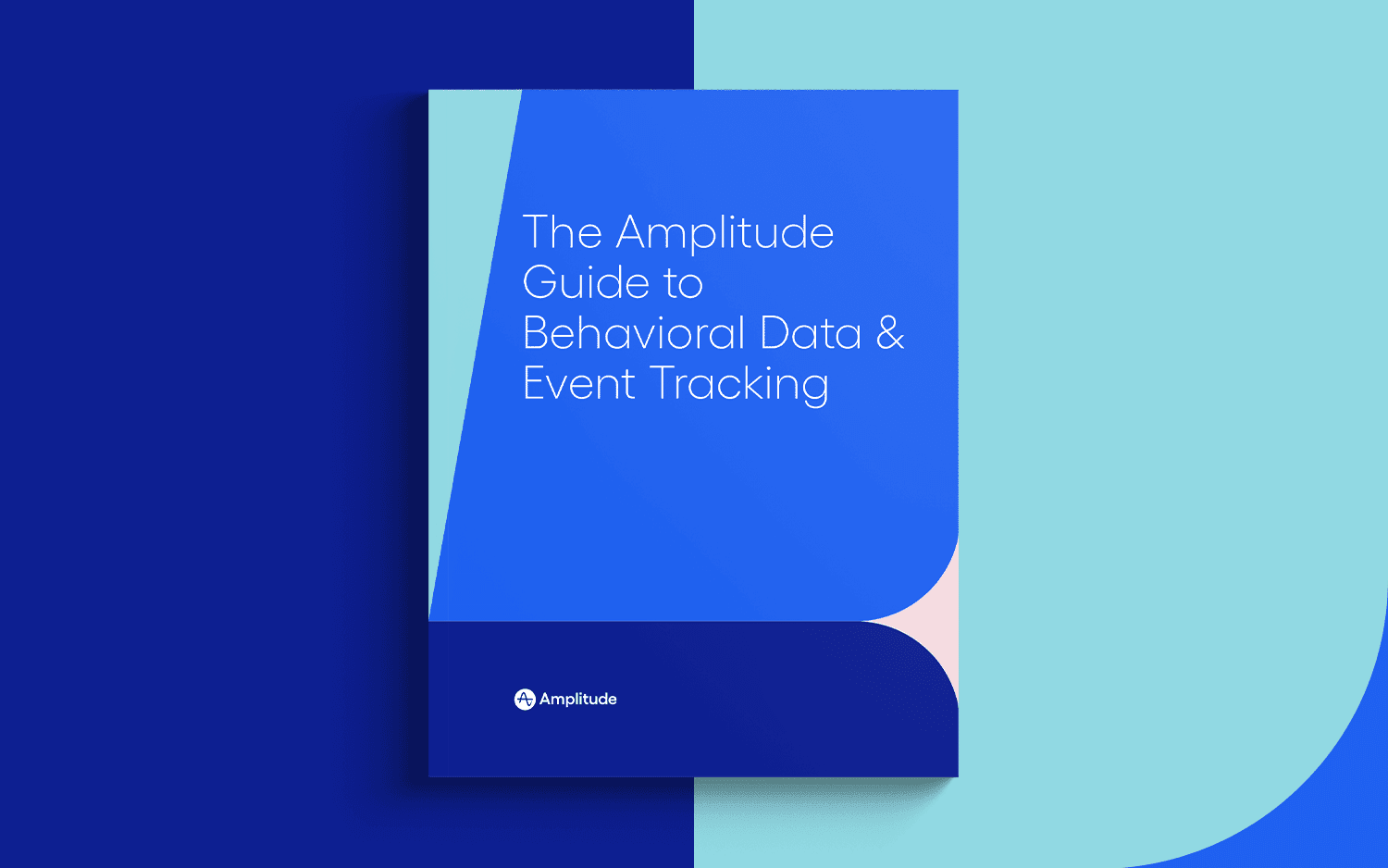Introducing the Amplitude Guide to Behavioral Data & Event Tracking
Learn how to lay a data foundation with clean data, robust tracking, and reliable analytics.
Note: This blog post is an excerpt from The Amplitude Guide to Behavioral Data & Event Tracking. Download the full guide to learn how to create an event tracking plan (using our free template) that accurately captures your behavioral customer data.
Preface
I firmly believe that everybody in an organization, regardless of their role, should understand the basics of data—where it comes from (sources), where it’s stored, and where it goes (destinations).
By default, we expect data and engineering folks (collectively referred to as data people) to have a good understanding of these basics as they’re the ones tasked with implementing data workflows. But they usually don’t have much context in terms of why certain data needs to be tracked and how it will be used in downstream tools.
On the other hand, go-to-market (GTM) folks (or non-data people) know what data they need in their everyday tools but often lack an understanding of where the data comes from and how it’s made available to them.
Due to my prior understanding of data integration and enthusiasm toward modern tools and technologies, when I led the customer data infrastructure efforts at a fast-growing SaaS company, I discovered that there are other less-obvious gaps that exist between data people and non-data people.
For instance, extremely proficient software engineers who also doubled up as data engineers were curious to understand why I had them collect behavioral data with such precision and how I intended to use that data beyond analytics.
I found it surprising (and frustrating) that there was a lack of unbiased educational content addressing the questions of both data people and non-data people. I wondered, “If only I could find a resource that explains this really important topic in simple terms, my life and the lives of my engineering counterparts would be much nicer.”
Then I told myself, “Maybe I should take some time to create that resource.” So I got to work, and the outcome was this guide I originally published as a series of articles under Data-led Academy.
Fast forward, and I’ve teamed up with Amplitude to accelerate my mission of demystifying data infrastructure for product and growth teams. Amplitude powers data-led insights for hundreds of companies and enables product and growth professionals to own their entire data workflow—from analysis to activation—while also providing necessary tools for them to collaborate with data teams and play an important role in setting up customer data infrastructure.
My hope is that this guide serves as common ground for data and GTM teams and enables them to have better conversations and build better customer experiences, together.
Key takeaways
The Behavioral Data & Event Tracking Guide will help you put your customer data into action and answer the following questions:
- What is customer data and the process of gathering and activating it?
- What do event and entity data look like in the context of customer data?
- Which events should you track and what data should you gather?
- How should you create an event tracking plan? (Free template included)
Once you’ve answered these questions and created your tracking plan, you can do the following with confidence:
- Lead the implementation of behavioral analytics and engagement tools.
- Gather clean, consistent, and reliable customer data.
- Ask the right questions about your data to better understand user behavior.
- Identify opportunities to collect and activate data to elevate the customer experience.
- Build better products, provide better experiences, and have better conversations.
Get the guide to uplevel your data strategy and lead your team to trustworthy analytics.

Arpit Choudhury
Founder, astorik
Arpit is growing databeats (databeats.community), a B2B media company, whose mission is to beat the gap between data people and non-data people for good.
More from Arpit





